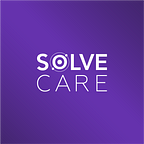Unlocking the Future: Why Decentralized Applications are the Key to Internet Freedom
Welcome back, readers! In our last blog, we delved into the importance of owning decentralized data. We discussed how owning your data means securing your privacy and protecting yourself from the data breaches that have plagued the Web2 era.
Today, we’re diving into the third and final critical component of decentralizing the internet: the application layer, or dApps (decentralized applications).
In the current Web2 world, applications are predominantly controlled by tech giants. They dictate the terms of service, control the app stores, and take a significant cut of the revenue.
Just think about the Apple App Store or Google Play Store. Developers are at their mercy, with stringent guidelines and high fees. And users? We are often left with little choice but to accept these terms, surrendering control and privacy.
Why is it crucial to own and build decentralized applications?
Well, imagine a world where no single entity can dictate the rules or shut down your access. That’s the promise of dApps.
In a decentralized ecosystem, the applications run on a network of computers (nodes) owned by different individuals, ensuring there’s no single point of control or failure. This model promotes fairness, transparency, and resilience.
Let’s take a closer look at what building and owning the application layer means for Web3:
Empowerment and Control
When you build or use a dApp, you’re stepping into an environment where you have control. There’s no middleman skimming off a portion of the profits or making unilateral decisions that affect your application’s reach and functionality.
Developers can deploy their applications freely, and users can engage with these apps without the fear of arbitrary changes or data misuse.
Transparency and Trust
Decentralized applications operate on blockchain technology, which means every transaction and change is recorded on a public ledger.
This transparency builds trust, as users can see exactly how the application works and how their data is used. There’s no room for shady practices or hidden terms.
Governance with checks and balances is built in through voting Decentralized Autonomous Organization (DAO) mechanisms, where every member of the community can participate. No one single entity or individual has control.
Security and Privacy
With dApps, your data isn’t stored in a single, centralized database vulnerable to hacks and breaches. Instead, data is distributed across a network of nodes, making it significantly harder for bad actors to access.
This decentralized nature ensures higher security and better privacy for users.
Fairness and Accessibility
In the Web2 world, the app stores’ monopolies often stifle innovation and limit accessibility. Developers might find it hard to get their applications approved or struggle with high fees that cut into their earnings.
With dApps, the barriers to entry are much lower. Anyone can create and deploy an application, fostering innovation and making a wide array of tools and services available to users worldwide.
The way Web2 infrastructure is designed allows for tech giants to have the advantage.
Amazon Web Services (AWS) & Cloud Hosting
AWS dominates the cloud hosting market, providing infrastructure and services for countless applications.
While AWS offers convenience and scalability, it also holds significant control over the applications hosted on its platform.
AWS can impose restrictions, adjust pricing, and even suspend services, leaving applications vulnerable to policy changes and outages.
In 2019, for instance, AWS experienced an outage that affected a large number of websites and applications, demonstrating how centralization can lead to widespread disruption.
Apple’s App Store are also gatekeepers in the industry.
Apple’s App Store is the only official marketplace for iOS applications, giving Apple immense control over which apps are available to iPhone and iPad users.
Apple enforces strict guidelines and takes a significant commission on app sales and in-app purchases, which can stifle innovation and limit developers’ earnings.
In 2020, the conflict between Apple and Epic Games highlighted this control when Apple removed Fortnite from the App Store over a payment dispute, impacting millions of users and illustrating the power a single company has over the distribution of applications.
If we continue to rely on centralized applications, we remain vulnerable to the whims of these tech giants.
Our data, privacy, and even our ability to access services can be compromised. Centralized control means a single point of failure; if one entity decides to change the rules, everyone else suffers.
In contrast, a decentralized approach distributes power and control, creating a more robust and fair internet.
By decentralizing the application layer, we can reclaim control, privacy, and security.
Developers will have the freedom to innovate without oppressive constraints, and users will enjoy a more trustworthy and open ecosystem. This shift is critical for building a truly decentralized internet where everyone has a stake.
The third pillar of decentralizing the internet — owning the application layer — is essential for creating a fair, secure, and transparent web. As we move forward, it’s crucial to embrace dApps and support the development of a decentralized ecosystem.
Massive change is coming this August 2024. Stay tuned for more updates, and remember, in order to participate in this revolutionary journey, make sure you download the Care.Wallet and own the SOLVE token. This is just the beginning. Together, we’re taking back ownership of the internet, one layer at a time.
Download the Care.Wallet on Google Play or the App Store.
Social Media Links:
X aka Twitter: https://x.com/Solve_Care/
Telegram: https://t.me/SolveCare/1
Discord: https://discord.gg/kVDjnq6vaZ
Website: https://solve.care/
#owntheinternet #itsaboutcontrol #web3 #decentralization
